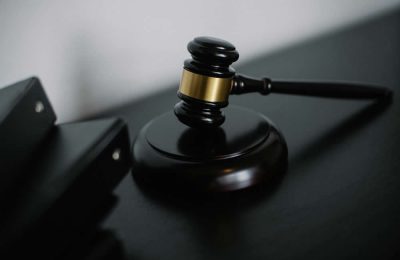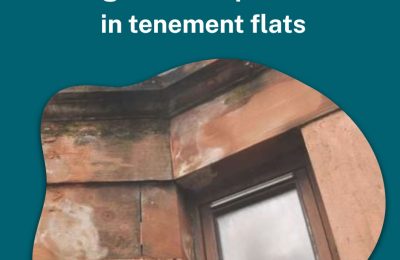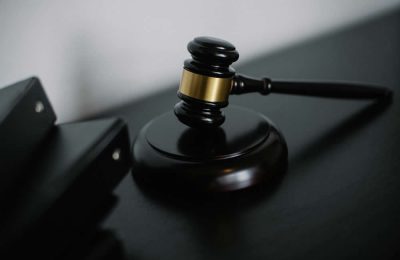If you’re looking to rent a property in Edinburgh, you might have many questions about how the process works, especially if it’s your first time renting in Scotland. Here, we answer some of the most frequently asked questions to help you feel equipped to proceed with your property search.
How should I start searching for a rental property?
Get organised! First of all, think about where you want to live, who you want to live with (if anyone), and work out what you can afford to spend on rent and bills each month. Make a list of things that are important to you to have in your new home, whether that’s proximity to good commuter links, access to a shared garden or a spare bedroom, and think about whether you want to rent a furnished or unfurnished property.
Register with local, reputable letting agencies and property portals, and set up alerts for the kind of property you’re looking to rent – remember and set your budget limits, so that as soon as a property comes to market that fits the bill, you can proceed. The rental market remains extremely competitive, so make sure you’re in a position to act fast should the right property come up.
How do I apply for a property?
It will vary slightly depending on the letting agent/landlord, but generally, after you’ve viewed the property, you should let the letting agent or landlord know that you want to proceed so you can find out the next steps in the application process. You should be prepared to fill in forms and pay the deposit on the same day as viewing.
What is the reference process for tenants, and how does it work?
References are required for almost all rental properties and are usually nothing to be concerned about. It’s just a way to give the landlord peace of mind that you, as a prospective tenant, will be responsible, reliable and take care of their property while you’re living there.
A typical reference includes details of your employment and income, previous address, bank account details, and sometimes a character reference from a previous landlord or letting agent. The references can take a couple of days to check and are usually fine, however, sometimes they might not be approved – this could happen if you have no previous rental history or if you have no regular income (such as students). In this case, a guarantor is a popular alternative solution to make sure you can proceed.
What are tenants responsible for in a rental property?
You are responsible for maintaining the overall condition of the rental property, which includes reporting any issues in a timely manner to ensure that things don’t get out of hand and can be fixed as quickly and efficiently as possible. For example, if there’s a roof leak or if an appliance breaks down, you should let the landlord or letting agent know as soon as possible so that they can limit the damage to the property.
Fair wear and tear is to be expected, but you should try to ensure that the property remains in a very similar condition to the inventory report you’ll receive when you move in. It can be helpful to take photographs of everything on the day you move in and save them with the date logged, so that you always have a reference of the exact condition the property was in when you moved in.
If you damage something in the property, it is your responsibility to pay for a repair or replacement. However, if repairs or replacements are required because of wear and tear, ordinary breakdowns or events like a leak, the landlord will be required to pay for this.
What happens to my deposit?
In Scotland, it’s the law that all deposits must be lodged with an approved tenancy deposit scheme within 30 days of your tenancy beginning. This protects your deposit and means you can access advice from the scheme if there are any disputes surrounding your deposit when you come to the end of your tenancy. The deposit will be returned to you at the end of your tenancy, minus any deductions for cleaning or repairs, which you will be notified of in advance.
What is a guarantor, and do I need one?
A guarantor is someone who agrees to be responsible for your tenancy if your reference cannot be approved – as long as your landlord agrees. Usually a parent or guardian, a guarantor agrees to take responsibility for paying the rent if you cannot, as well as paying for any damages higher than the value of the deposit. You will usually only need a guarantor if you haven’t rented a property before and therefore have no references, if you have no regular income, or if your reference hasn’t been fully approved by the usual process.
What changes can tenants make to a property?
This depends entirely on your landlord and your rental agreement. In most cases, you will need written permission to make any decorative changes to the property, such as hanging pictures or even painting the walls. Some landlords may agree to you making changes, as long as the property is returned to its original condition at the end of the tenancy.
How often should I expect a property inspection, and what happens during one?
The frequency of property inspections during your tenancy is at your landlords’ discretion and will be outlined in your rental agreement. Some landlords don’t mind an annual check-in, while others will want to come to the property on a quarterly basis. They will be arranged with you in advance, and allow the landlord or letting agent the opportunity to make sure the property is being well cared-for, and check if any repairs or maintenance is required.
What happens if my landlord wants to raise the rent?
New legislation came into place on 1 April 2024 which affects how often, and by how much, landlords can raise your rental rate during a tenancy. The general rule is that landlords can raise the rent by 6%, unless a 6% rate would still place the rental rate below the perceived open market value. In this case, a tapering system would be applied which allows some properties to have rents increased by as much as 12%. If you believe that your proposed rental rate is unfair or doesn’t abide by these rules, you can escalate this to the Rent Office to investigate.
How much notice do I have to give when I want to leave a rental property?
This will depend on the type of rental agreement that you have negotiated. If your lease started after 1 December 2017, then you will have agreed to a Private Residential Tenancy, which has no fixed term or end date. This means that you are only required to provide your landlord with 28 days’ notice of your intention to leave, which can be given at any time.
If your lease began prior to 1 December 2017, you will be in a fixed-term lease and should refer back to your agreement for the details of your notice period.











